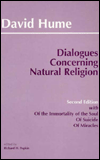If I Could Make a Movie
 The situation is ripe to make a new movie about Jesus in the style of Luhrmann's Romeo and Juliet. If you remember, Luhrmann took the story with its Shakespearean dialogue and simply placed it in a contemporary European setting. The effect was quite beautiful, and many of the details we might have missed if it were placed in the year 1600 were revealed quite powerfully in the film.
The situation is ripe to make a new movie about Jesus in the style of Luhrmann's Romeo and Juliet. If you remember, Luhrmann took the story with its Shakespearean dialogue and simply placed it in a contemporary European setting. The effect was quite beautiful, and many of the details we might have missed if it were placed in the year 1600 were revealed quite powerfully in the film.If I had the cash and skills and time and know how, I would make a movie in the same style about Jesus with the setting in Iraq. Though I am not very passionate about the war in Iraq, there are some very interesting parallels that would display the socio-political realities of Jesus own day very well.
Iraq is a country with a rich but broken religious tradition. It is occupied by the world's lone empire. The question on the minds of Iraqis
 seems to be how do we react to this occupying force. There is a zealot element using violence to promote its end. The religious order is torn between differing responses to the problems. There is a complex relationship between the leaders of Iraq and the ambassadors from the US. Most look and just see a disparaging situation. The backdrop in many ways is amazingly similar.
seems to be how do we react to this occupying force. There is a zealot element using violence to promote its end. The religious order is torn between differing responses to the problems. There is a complex relationship between the leaders of Iraq and the ambassadors from the US. Most look and just see a disparaging situation. The backdrop in many ways is amazingly similar.Imagine a film in which a charasmatic personality from the Muslim community began to speak of a new way of being human, a new way of loving God. Imagine that he spoke of a new Kingdom where bombs and tanks and sabers were irrelevant. Where power was illusory for the world is God's. Imagine that he began to draw people to hear him in the market square, but that he had to hide because of the violent nature of those who opposed him. He in fact had to speak in parable so that he would be understood, but vaguely. We might imagine him saving a woman caught in adultry waiting to be stoned (as is still common). We might imagine him healing those who have been wounded by a dysfunctional world and dysfunctional rulers. Imagine that he went about the streets of Baghdad simply doing good and proclaiming a better way. Perhaps he tells a story of the "Good Jew" who stopped to heal a man on the side of the road who had been beaten and left for dead. Perhaps he stands in the mosques of his day to call Muslims back to the God who is real.
 Passion week might be difficult to orchestrate because the US doesn't govern the way Rome did. Handing a man over to the US to be executed would be hard to realistically pull off, but there could be some bad guys in the story. Allowing the zealots to cut Jesus' head off may be too easy. Hanging his body from the highway bridges (as some Americans were in Fallujah) would be more in line with the idea of the cross, surrounded by the mobs, on the traveled road of the day for all to see.
Passion week might be difficult to orchestrate because the US doesn't govern the way Rome did. Handing a man over to the US to be executed would be hard to realistically pull off, but there could be some bad guys in the story. Allowing the zealots to cut Jesus' head off may be too easy. Hanging his body from the highway bridges (as some Americans were in Fallujah) would be more in line with the idea of the cross, surrounded by the mobs, on the traveled road of the day for all to see.Though my movie may never be made, the long and short is that both the US and the Muslim community need a man of peace to step into their midst to reveal a better way. He will have to be a man of courage for he will be immidiately opposed, but just maybe he will gather followers to his side, and over time his reflection of Jesus will bring new insite and a pattern to follow into that broken region.












